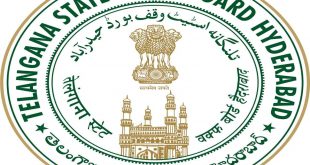The Supreme Court on Monday directed the Centre to respond to a plea seeking to declare the provisions of Muslim Personal Law (Shariat) validating the practice of polygamy and ‘nikah halala’ as unconstitutional.
A bench comprising Chief Justice Dipak Misra and Justices A M Khanwilkar and D Y Chandrachud, while issuing notice to the Centre and the National Commission for Women, also ordered tagging of the petition with other similar pleas which have already been referred to a five-judge constitution bench for further hearing.
The order came on a separate petition, filed by Lucknow resident Naish Hasan.
Senior lawyer V K Shukla and advocate Ashwini Kumar Upadhyay representing Hasan said similar pleas have already been admitted for hearing by a five-judge constitution bench.
“Declare Section 2 of the Muslim Personal Law (Shariat) Application Act, 1937, unconstitutional and violative of Articles 14(Equality before law), 15 (Prohibition of discrimination on grounds of religion, race, caste, sex or place of birth) and 21 (Protection of life and personal liberty) of the Constitution, insofar as it seeks to recognise and validate the practice of Polygamy, Nikah Halala, Nikah Mutah and Nikah Misyar,” the plea said.
Naish Hasan, in the fresh petition, said the pivotal issue that needed to be answered was whether under a secular Constitution, women, merely by virtue of their religious identity, can be relegated to a status significantly more vulnerable than their counterparts professing other faiths.
“The practices under challenge [Polygamy, Nikah Halala, Nikah Mutah and Nikah Misyar] are practices which impact the social status and dignity of Muslim women and render them unequal and vulnerable qua men belonging to their own community; women belonging to other communities and also Muslim women outside India,” Hasan said.
‘Nikah Mutah’ and ‘Nikah Misyar’ are both temporary marriages where the duration of the relationship is specified and agreed upon in advance.
The apex court had on March 26 referred a batch of pleas challenging the practice of polygamy and others to the constitution bench.
The bench had considered the submission that an earlier five-judge constitution bench, in its 2017 verdict, had kept open the issue of polygamy and ‘nikah halala’ while quashing triple talaq.
While polygamy allows a Muslim man to have four wives, ‘nikah halala’ deals with the process in which a Muslim woman, who wants to remarry her husband after divorce, has to first marry another person and get divorce from him after consummation.
 Al Haqeeqa
Al Haqeeqa





